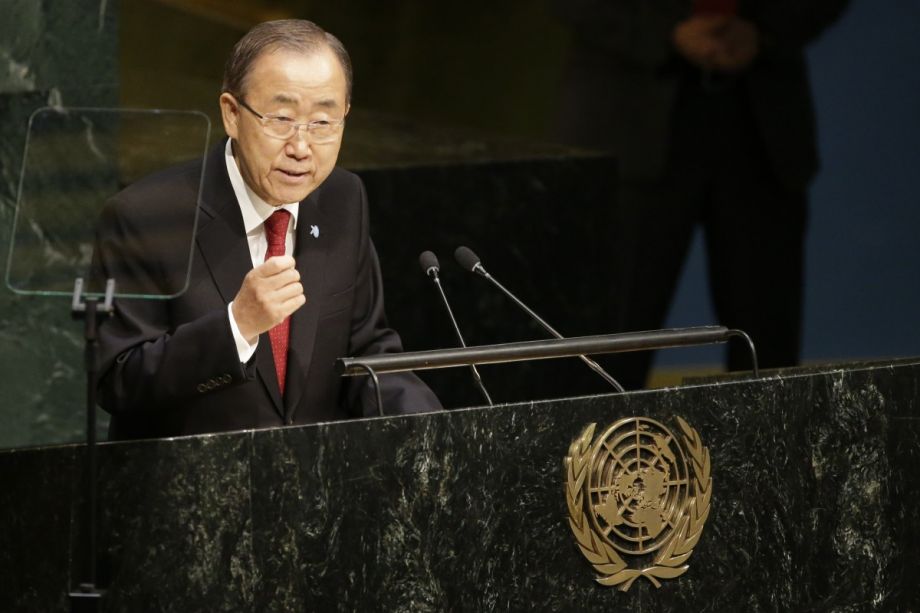Cities desperately need funding and expertise to tackle climate change — but where will they find it? This is a question tackled by a report launched at the COP21 climate talks today. Compiled by the Cities Climate Finance Leadership Alliance, a coalition of more than 40 banks, national governments and civil society organizations, the State of City Climate Finance Report highlights a fundamental need in a rapidly urbanizing world. For cities to become more climate change resilient, national governments need to create mechanisms to cede more power and finances to them to develop their expertise.
At a Paris press conference this morning, Rachel Kyte, the World Bank’s vice president and climate change representative, highlighted some of the difficulties cities currently face in this area.
“Too many cities today are facing a critical shortage of finance resources that they can tap into,” Kyte says. “Most cities do not generate sufficient fiscal resources, or have difficulties in accessing financial markets. This blocks them from the ability to invest in a resilient, low-carbon way. This report backs [the World Bank’s] own research that shows that only 20 percent of the world’s largest cities have the basic analytics necessary for low-carbon planning, and only 4 percent of the 500 hundred largest cities worldwide — not just the developing world — are credit-worthy in international markets.”
According to the report, which will be launched officially tonight in the presence of UN Secretary General Ban Ki-Moon and the mayors of Paris and Rio de Janeiro, there are various reasons for this funding and expertise bottleneck. City officials may be unsure over tax and regulatory policies on climate resilient infrastructure. They might also struggle to incorporate relevant goals into local planning, or lack expertise in creating projects that can attract financing. Many barriers, however, are structural. Cities may face high transaction costs, and may have to cede much control over vital infrastructure planning and stakeholder coordination to national or regional governments. To overcome these obstacles, the report has the five following proposals.
1. National governments need to finance cities to invest in climate-resilient infrastructure.
Cities may be key to tackling climate change, but they are not sufficiently empowered financially to do so. To encourage the flow of climate resilience funding from a national to a local level, governments should be using “grants, matching funds, tax transfers and preferential loan rates
to support investment.” Examples of this approach already exist. The report cites Brazil, whose ICMS Ecológico fiscal transfer mechanism allows states to transfer some sales tax revenues to cities that set up protected conservation areas. This has greatly increased the extension of such areas in many parts of the country.
2. Improve and increase frameworks to price climate externalities.
Fixing a price for climate-related externalities can be difficult, whether they are ones with a predominantly local impact — such as smog or congestion — or externalities — such as carbon emissions — whose effects are global. Governments at a national level can nonetheless support cities in externality pricing by allocating them resources to develop mandates, mechanisms and trading systems. A case of these mechanisms already in existence is Washington, D.C.’s Stormwater Retention Credit Trading Program. Introduced in 2014, the program offers stormwater retention credits to participants who exceed regulatory requirements or invest in water-retaining improvements, such as green roofs or rain gardens.
3. Improve support for urban project preparation.
According to the report, “Many cities struggle to develop bankable projects because they lack the management expertise and experience to prepare them.” Preparing for projects is expensive, accounting for 5 to 10 percent of total project costs. Project preparation facilities that are designed to grease and streamline processes like these already exist, but they rarely focus on urban or climate resilient infrastructure. Creating project preparation programs that focus on cities could have a significant impact. A possible template for project preparation is the Cities Development Initiative for Asia. The initiative has conducted 85 infrastructure projects for medium-sized cities in developing Asia, from which 49 projects have already succeeded in attracting $5.9 billion of investments.
4. Stream more finance through local institutions.
Current frameworks for international climate finance tend to focus on the national level. This matters not just because it sidelines cities, but because local financial institutions are often far better placed to assess the credit-worthiness of a city. Making things even more complicated for cities, many low-emissions assets in their jurisdiction are owned by small diverse entities — households with solar panels, for example — that do not meet traditional credit standards. Developing more local financial intermediaries could make this process far easier, as has already proved the case with Mexico’s Ecocasa program. Ecocasa has channeled more than $50 million of international investments through a locally controlled federal mortgage society, which in turn issues concessionary loans to local housing developers to use energy-efficient and renewable technologies.
5. Create an urban lab network to identify and pilot new funding models.
If cities are to overcome the particular financial obstacles they face to becoming more climate resilient — notably a lack of control over revenue streams — they will need innovative forms of financing. To meet this need, the report recommends creating urban climate finance labs, either as standalone institutions or as a network of institutions. These labs could develop verification processes that boost cities’ access to funding and work on ways to adapt useful existing models, such as land value capture. One successful lab already operating is the Global Innovation Lab for Climate Finance. The lab, established by a group of climate-finance donor countries, has piloted several initiatives that have attracted more than $170 million in funding.
This piece is part of a series of reported articles and op-eds that Next City is publishing related to preparations for the United Nations’ Habitat III conference in Quito, Ecuador, in October 2016. With a grant from the John D. and Catherine T. MacArthur Foundation, we’re covering the critical issues at stake on the road to creating a “New Urban Agenda,” and hosting events at PrepCom III in Surabaya, Indonesia, in July 2016, and in Quito.

Feargus O’Sullivan is a London-based writer on cities. He contributes regularly to Next City, CityLab and The Guardian.
















